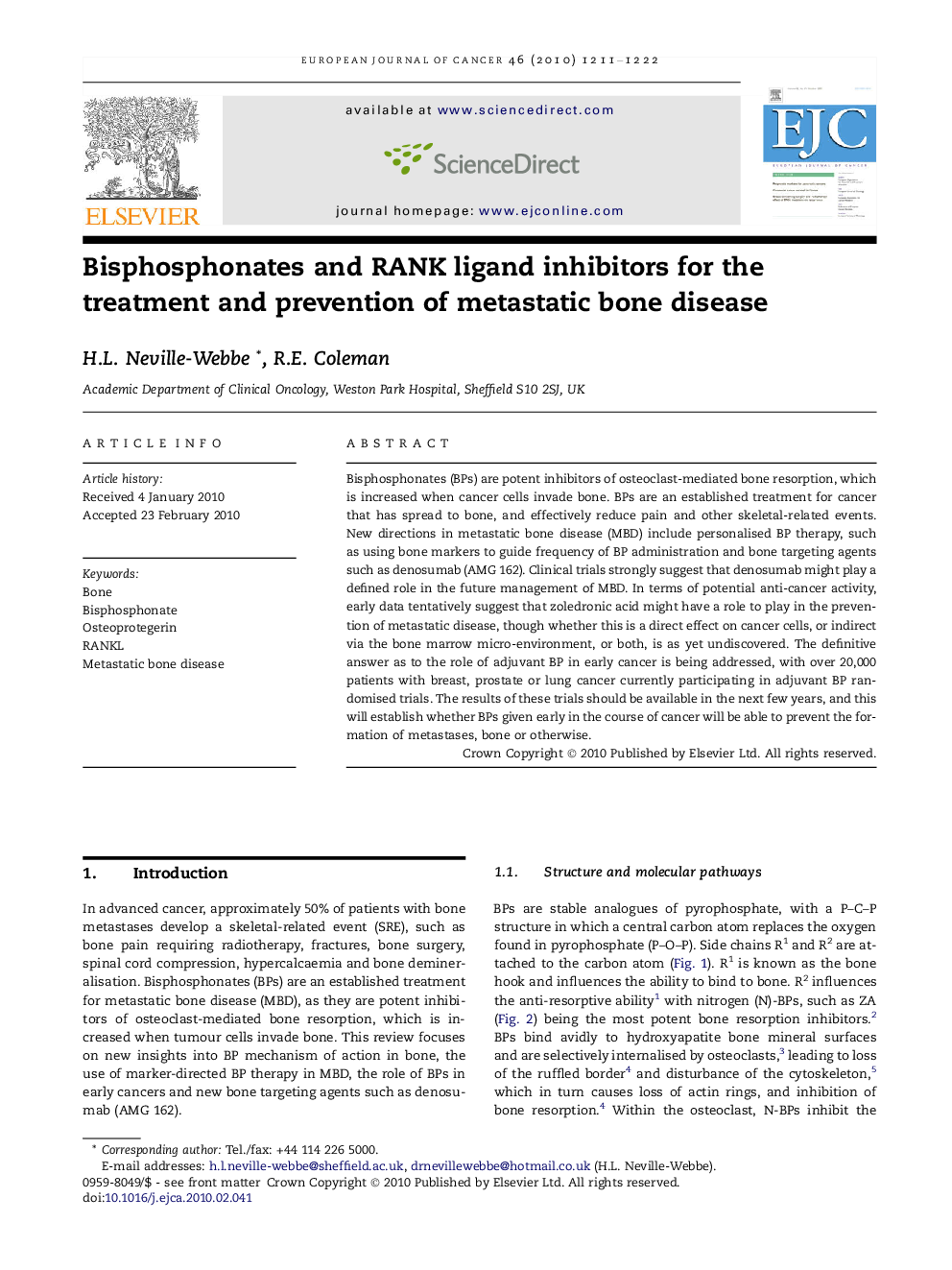| Article ID | Journal | Published Year | Pages | File Type |
|---|---|---|---|---|
| 2123768 | European Journal of Cancer | 2010 | 12 Pages |
Abstract
Bisphosphonates (BPs) are potent inhibitors of osteoclast-mediated bone resorption, which is increased when cancer cells invade bone. BPs are an established treatment for cancer that has spread to bone, and effectively reduce pain and other skeletal-related events. New directions in metastatic bone disease (MBD) include personalised BP therapy, such as using bone markers to guide frequency of BP administration and bone targeting agents such as denosumab (AMG 162). Clinical trials strongly suggest that denosumab might play a defined role in the future management of MBD. In terms of potential anti-cancer activity, early data tentatively suggest that zoledronic acid might have a role to play in the prevention of metastatic disease, though whether this is a direct effect on cancer cells, or indirect via the bone marrow micro-environment, or both, is as yet undiscovered. The definitive answer as to the role of adjuvant BP in early cancer is being addressed, with over 20,000 patients with breast, prostate or lung cancer currently participating in adjuvant BP randomised trials. The results of these trials should be available in the next few years, and this will establish whether BPs given early in the course of cancer will be able to prevent the formation of metastases, bone or otherwise.
Related Topics
Life Sciences
Biochemistry, Genetics and Molecular Biology
Cancer Research
Authors
H.L. Neville-Webbe, R.E. Coleman,
